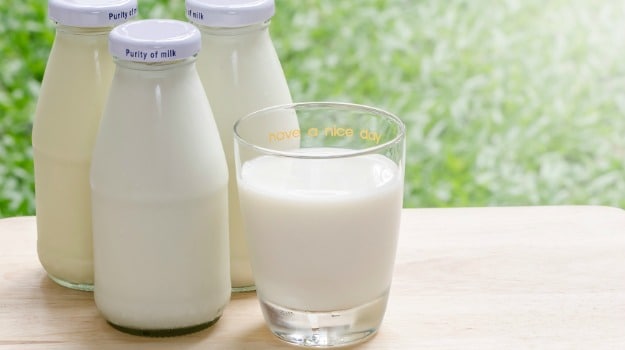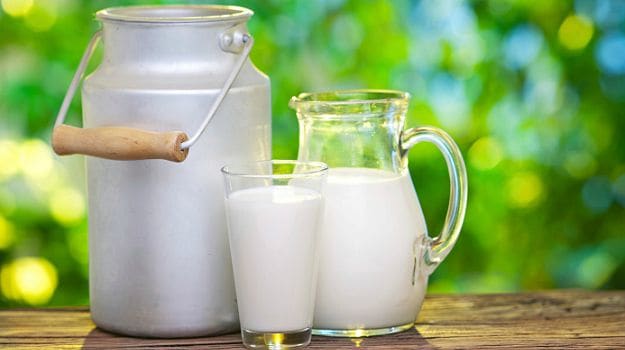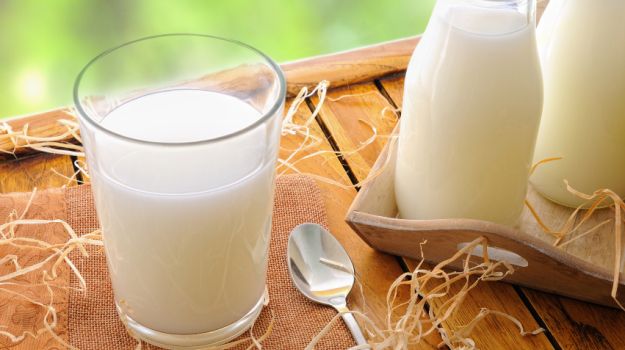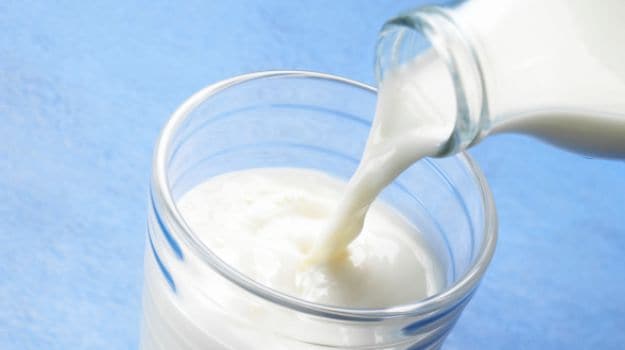
"Food adulteration is an act of intentionally debasing the quality of food ordered for sale, either by the admixture or substitution of inferior substances or by the removal of some valuable ingredients." - Food Security & Standards Association of India (FSSAI).
Science and Technology Minister Mr. Harsh Vardhan's recent comment on adulterated milk raked up an atmosphere of anxiety not only within the chambers of Lok Sabha but in the drawing rooms of Indians across the country. It is a daunting thought, that over 68% of the milk in India fails to meet the recommended quality standards. Not only is milk one of the most important ingredients for children's overall development, it is essential for adult health as well. Apart from nutritional purposes, it is also the most widely used item, indesserts, food preparations, baking and not to mention beverages like chai and coffee.
Mr. Harsh Vardhan spoke about various contaminants found in milk when tested across the country. Most of the commonly ones would include detergent, white paint, caustic soda, refined oil and glucose. This has once again led to questioning the efficacy of the central food regulator. Last year in July, the food watchdog, FSSAI announced putting a cap on Melamine content in milk and milk products sold across the country.

Milk Adulteration
Melamine
According to the World Health Oraganisation, "Melamine is an organic base chemical most commonly found in the form of white crystals rich in nitrogen and is widely used in plastics, adhesives, countertops, dishware, and whiteboards. Companies using the milk for further production (e.g. of powdered infant formula) normally check the protein level through a test measuring nitrogen content. The addition of melamine increases the nitrogen content of the milk and therefore its apparent protein content."
United Nation's food standards body, the Codex Alimentarius Commission mentions the maximum limit of melamine content in powdered infant formula as 1 mg per kg and for other foods and animal feed as 2.5 mg per kg.
In a notification published last year, the FSSAI proposed imposing a permissible limit of 1 mg of melamine in every kg of powdered infant formula, 0.15 mg per kg in liquid infant formula and 2.5 mg per kg in other foods.

E. Coli
Experts believe that bacteria like E.coli - essentially found in cow's waste - can easily mix with milk. If cows are not cleaned properly, the remnants of waste can make its way to the freshly collected milk. The bacteria can then multiply and can cause serious harm if one consumes the same milk.
The National Survey on Milk Adulteration 2011
The survey was conducted by the FSSAI to check for the contaminating agents in milk. It was found that in most cases the contamination happened at the procurement, packing & packaging stage. Lack of hygiene and sanitation during the overall process was another factor. Contaminants such as detergent, glucose, starch, urea and formaline also seemed to have found their way into the final product in most samples. According to the report published on the official website of Centre for Science and Environment, the adulterants used are usually for the purpose enhancing the volume, thickness, consistency and viscosity of milk and to increase the shelf life of the final product.
"Samples were collected from 28 states and five union territories. The worst performers were Bihar, Chhattisgarh, Odisha, West Bengal, Mizoram, Jharkhand and Daman & Diu, where non-conformity with food safety standards was 100 per cent. There are nearly 70 per cent samples which have not conformed to the standards set for milk. Samples collected from rural areas fared better with only 30 per cent non-compliance as compared to urban centres. Water turned out to be the most common adulterant in milk. About eight per cent samples were found to have detergents," as published on the CSE website.

Water as an Adulterant
According to Mr. Amit Khurana, programme manager, food safety and toxins, CSE, E. coli and other bacteria that contaminate milk can mostly be countered by ensuring proper sanitation and hygiene at all processing stages as well as by boiling and pasteurizing milk properly. In case of addition of water, it is bound to lead many microbiological issues tied with the inclusion of unsafe water in human system. "The key would be to know the nature of adulteration. Best to my knowledge, most adulteration found in the FSSAI 2011 survey was with respect to water," he shared
"What we should be concerned about about is the intentional addition of artificial agents and adulterate milk. Mixing water in milk is a common practice by the local doodhwallahs. Having harmful elements - urea, carbonates and bicarbonates, salt, sugar, hydrogen peroxide, neutralizers (NaHCO3 , Na2 CO3 , NaOH, Ca(OH)2 etc.), sodium chloride, etc. added to our everyday drink is completely unacceptable. You cannot have synthetic milk, the regulators need to come down on such an issue by all means," he added.
Your Food is Adulterated When...
According to FSSAI if a food article is tampered in one or multiple ways listed below, it stands contaminated and adulterated, therefore unfit for consumption:
- A substance is added which depreciates or injuriously affects it
- Cheaper or inferior substances are substituted wholly or in part
- Any valuable or necessary constituent has been wholly or in part abstracted
- It is an imitation
- It is coloured or otherwise treated, to improve its appearance or if it contains any added substance injurious to health.
- For whatever reason its quality is substandard

How to Spot Adulterated Milk:
The central food regulator also gives out guidelines on how can one check for adulterants and contaminants in milk. We are sharing a few of them below:
Water - Put a drop of milk on a polished slanting surface, if it flows slowly, leaving behind a white trail, it is fine. If it flows swiftly without leaving a trail, it is adulterated with water.
Starch - Adding a few drops of iodine tincture or iodine solution will help spot starch in milk - the liquid will turn blue on presence of starch.
Detergent - Spotting it is a cake-walk. Take a bottle of milk and shake it, if it lathers up, it contains detergent.
Other Contaminants (detergent, urea, white paint, etc.) - Look for a bitter aftertaste. Once you rub some drops of milk in-between your fingers, adulterated milk will give you a soapy texture. Adulterated milk will turn yellowish on boiling.
Expert Advice
"Many chemicals and artificial agents are added to increase the shelf life of milk. Hydrogen paraoxide and formaline are a couple of them. These can be extremely injurious to human health. Nitrogenous compounds are added to artificially enhance the taste of protein in milk. The consistency or thickness of milk is another area, starch is an agent used to add thickness to the otherwise watered-down milk," shared Mr. Ramakant Sahu, CSE pollution monitoring lab.
"One really can't do anything when it comes to the packed pasteurized milk. Such products undergo a series of processes and it is hard to trace the point of adulteration. Other factors that come into play would include the way the animal is kept; the sanitation and hygiene levels while milk procurement, quality of fodder given to the animal and so on. If you source milk from the local dairies, make sure to give them a visit and see the quality of the product and condition of the animal yourself. Go for the trusted ones which have been in business since long," shared nutritionist and weight management specialist, Dr. Anshul Jaibharat.

Steps You Can Take at Home:
Dr. Jaibharat calls for a stringent processing policy for the processing, packaging and distribution of milk and other edible items. She also pointed out the fact that adding water to milk has been in practice since ages to meet the excessive demand especially during certain seasons - when young calves need milk, the supply goes down automatically. The best would be to research and keep an eye. Visit your dairy periodically and keep a strict watch. Make sure you boil the milk on slow flame till boiling point. Avoid re-boiling milk as it brings down the nutritional value of milk.
Recently in the parliament, Science and Technology Minister Harsh Vardhan talked about a new scanner which can detect milk adulteration in 40 seconds with an ability to detect the exact adulterant.
"If the new scanner or any similar technology can help solve the issue, it is welcomed. Now is the time for proper and stringent implementation of basic regulatory practices and norms - it is the time to act," concluded Mr. Khurana.
If Mr. Harsh Vardhan is to be believed, who knows, the future might have a GPS-based technology that could be used to track the exact location where the milk supplied in the cold chain has been tampered with. In the meanwhile, what seems practical is to curb the adulterating practices and prevent further damage, rather than planning for remedial measures.




